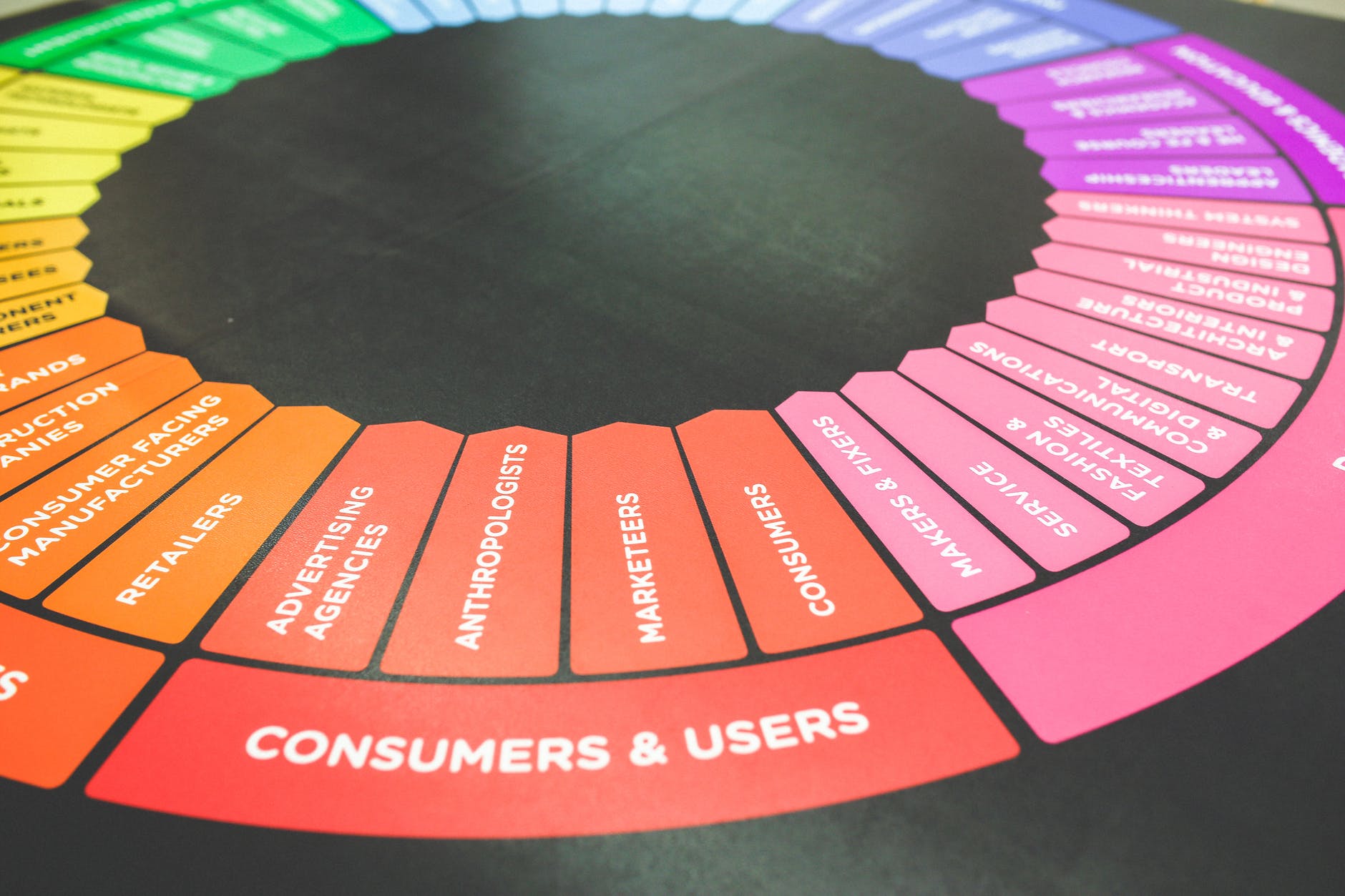
Hey there!
So you want to be a freelance writer but you’ve got no clue of what to even do. What should you even call yourself and what is the difference between all these ‘writer titles’? Does it make more sense to call yourself a copywriter or a content creator? Perhaps a content writer? Do you know what skills each of these titles even requires?
Alright, alright, enough of the questions and let’s jump in.
What is a content writer/creator?
A content writer/creator is someone who creates content that will create a relationship with a chosen audience. What do I mean? I mean content that educates or provides value to an audience would be considered to be content writing/creation. This is done through content that is informative, entertaining and/or educational. This is what an audience reads before getting to the copywriting part of the ‘relationship’ so to speak.
Examples of this would be:
- A blog/blog post
- An article
- A how-to article
- Ebook
- Newsletters
- Tutorial videos
- Social media

What skills do you need to be an amazing content writer/creator?
There are a number of skills required in order to be a great writer…of any kind but the most important skill, in my own opinion is the ability to write with proper grammar and spelling. You should be able to edit your content and ensure that you’re using proper terms, grammar and spelling. Personally, I see so many great blog posts about different topics and then get turned off due to their grammatical errors. Some people are fine with these, which is fine, however, if you can’t take the time to pull out a dictionary (or even look up a word online) in order to make your work more professional, then unfortunately, it’s not a good sign for the work that’s gone into the rest of your work. Now I get it, we’re all human and all make mistakes. A few mistakes here and there is normal but your work shouldn’t be riddled with errors.
Another skill one should have is to be able to do proper and thorough research. When you’re creating content, your aim is to educate your reader about a specific topic. If you haven’t researched your chosen topic thoroughly, then you’re giving either misinformation or half information to your audience and they won’t really come away with much from your post.
A third incredibly useful skill to be an impeccable content writer is to have a solid understanding of SEO. SEO is Search Engine Optimisation and you need to have this down pat in order to rank in Google. There’s a bunch of different components in order to master SEO such as keyword research, using alt tags, filling in your meta-descriptions, having relevant images, mastering on-page AND off-page SEO (on-page are when you add links between pages on your own website such as linking from one article to another on your own site and off-page is all the link building done off of your website to help drive traffic back to your site — this includes guest posting, social media, content marketing, podcast guest appearances, etc…) just to name a few.
In addition, you need to be able to train yourself (if you’re not already) to be able to focus on your tasks at hand, be able to stay organised, and the ability to communicate your thoughts effectively as well as meet deadlines.

What is a Copywriter?
Copywriting on the other hand is all about getting your audience to take up some type of action, whether monetary or not. It’s all about encouraging some type of action.
Examples of this would be:
- Website
- Landing pages
- Sales pages
- Email campaigns (trying to capture audience emails in order to build an email list to advertise/sell to later on)
- Ads
- White Paper (According to Investopedia, ‘A white paper, also written as “whitepaper”, is an informational document usually issued by a company or not-for-profit organization to promote or highlight the features of a solution, product, or service that it offers or plans to offer. White papers are also used as a method of presenting government policies and legislation and gauging public reaction.’)

What skills do you need to be an amazing copywriter?
First off, you’ll need to build up some resilience. Why you ask? Well, when you work for clients as a copywriter, you know that you have a client that you need to satisfy. In order to do that, you will sometimes get some criticism on your work that you need to be ready to accept and move forward professionally. You can’t have a fit when someone doesn’t appreciate your time and work. It takes a lot of time and patience to be a good writer and when you’ve spent, perhaps hours or even days, working on a piece and you submit it to your client and they either tell you they don’t like it or they would like to make changes, you must be ready for that.
Another much needed skill would be VERY strong research skills. Not only do you need to research who you’re writing for and write according to your reader’s preferences but you also need to ensure that you are sending out an accurate message as well. You need to learn to speak to your customer. You can find ways to do this in various courses however, one way that I learned through a course on Skillshare called ‘Copywriting for beginners’ by Jesse Forest, is by looking at Amazon book reviews. He teaches his students to go onto Amazon and look up the category/subcategory that you are writing about. From there, look up the best seller books and look up their reviews and then look at the language and keywords being used. You can use these keywords in your own writing. You also get to have a feel for your audience’s pain points are as well as what they enjoy so you can speak to them in a more personal way.
This comes back to my previous point, most copywriters will not and cannot write about EVERYTHING. You should have a specific niche that you cater to in order to specialise in your specific audience. For example, I know about working from home however, if you asked me to write you an article about snakes, it would either take me ALOT of research in order to get something out to you and even then it may not be up to par because snakes are not my specialty. That’s not to say that I can’t write about snakes but I wouldn’t do it with as much confidence on a professional level as I could writing you something about working from home. So a copywriter should know their niche/topic of choice well. They should also know who their audience is to ensure that they are able to deliver the best copy possible to their clients in order for their clients to get a good ROI.
A copywriter is also always ready (and constantly) thirsty for knowledge. If you want to be a copywriter, you need to always want to learn about your niche in order to perfect your skills.
Another quality (that also applies to a content creator) would be grammar. You need to be impeccable at grammar, or at least keep a dictionary/thesaurus on hand. You don’t want to be handing your professional client an article riddled with mistakes. That’s not to say that there can never be a single error in your writing however, you should make a conscious effort in keeping them to a minimum. One free tool that you can use to ensure that your grammar is always on point is grammarly. They have a premium feature as well but the free version is sufficient for
Another trait that a great copywriter…or a writer of any sort for that matter should be their love for reading. However, a copywriter specifically won’t necessarily go for the books or the novels. No, instead, they’ll go for publications concerning their field of choice or ones that deal with media specifically. This is because as a copywriter, you need to stay on top of all the latest trends in your industry so you are knowledgable enough to write about them.

What is a Freelance writer?
A freelance writer is a mixture between both. What do I mean? Well, like a copywriter, a freelancer usually specialises in one or two specific topics (although they can also be generalists). And like a content writer….well, freelance writers..create…well….content. Something else these all have in common, though not necessary for content and copy writers is that freelancers (specifically) work for noone but themselves where as copy and content writers can also be freelancers but they can also be employed by a business/company.
I was reading an article yesterday while researching for this article and I came across the origins of the word ‘freelance’. This doesn’t really have anything to do with the word we use today but it’s definitely interesting to know — skip this paragraph if you don’t care — but the word freelance actually came about in the early 1800s to describe a medieval mercenary who had no allegiances to any specific nation. They would fight for any lord that paid the most for their services.

What skills do you need to be a phenomenal freelance writer?
Unlike the other two types of writers, as a freelancer, you work for yourself so you need the same skills as above with a few additions. Because this is YOUR business, you also need some type of business knowledge.
First off, you should have networking skills. What I mean by networking isn’t that you just sell sell sell. My version of networking may be a little different from what you’re probably used to. Another way to say networking — for me at least would be — to build relationships, real relationships, not just ones that you keep for the sake of selling. Yes, these may take a bit longer to create, however, how many times have you bought anything — or referred your friends to — that person who slipped into your dms litterally just to sell you their product or service? Not very often I’d imagine so what make you think someone else would buy from you when all you saw them as was a dollar (or whatever your local currency is) sign? When you build relationships rather than just sell, you 1)don’t look and feel like a slimy salesperson, 2) you may not be what the person is looking for NOW but in the future, when they need someone with your skills, guess who will pop into their mind? 3)Even if you’re not what they specifically need, if you treated them like a human being, they’ll be much more likely to refer you to their friends as well. So, never underestimate the power of building friendships and relationships with people. Also, where will you network/find your clients? Will you attend Networking events? Are you going to use social media (if so, which platforms)? Will you go to local businesses? Will you send emails to businesses that you resonate with?
This brings me to my next point which would be marketing. A freelance writer (or any type of freelancer for that matter) should have some basic marketing skills. How are you going to present your business to the public in order to attract your ideal client? If you REALLY want to get into the marketing aspect of your business then you can also consider the colours and fonts you use in your branding and research how they affect your audience. If you’re interested in learning more about marketing psychology, I’ve listed a few resources below for you to check out.

Marketing Psychology:
Brand Colour Psychology:
Brand Font Psychology
Next, have your systems in place. How do you want to get paid? What will you use to create and send your invoices? How will you stay organized? Where will you keep all your writing notes? Will you hire someone to take care of certain aspects of your business or will you do it all on your own? How will you keep all your clients and their work organized? These are just SOME of the things you need to think about in order to keep your business running smoothly. For example — I’m using this as an example because I’ve done social media management myself — what social platforms does a client want to post for? How are you going to automate those posts in order to avoid being on your phone/laptop 24/7 but still have their content pumped out? Well, that depends on the platforms they want to post to. For example, if they want to post to Facebook/Instagram, then the best (free) platform to use to post on both mediums is Facebook Business Suite (Facebook Creators studio) but if they want to post to IG and Pinterest then the best one to use would be Tailwind. So these are all things you need to consider as well.
This is in addition to all the points and skills noted above. I hope this helped you untangle the world of writing, even if it is just your starting point in your freelance writing journey.
If you found this information helpful or useful in any way, please share it with your friends and comment below what you’re interested in doing as a writer, I’d love to know your thoughts!
And check out my last post about networking here!
The form you have selected does not exist.
Please share, like, comment, subscribe.





Pingback: Quality versus quantity - how much should you work? - Rameesa Faisal